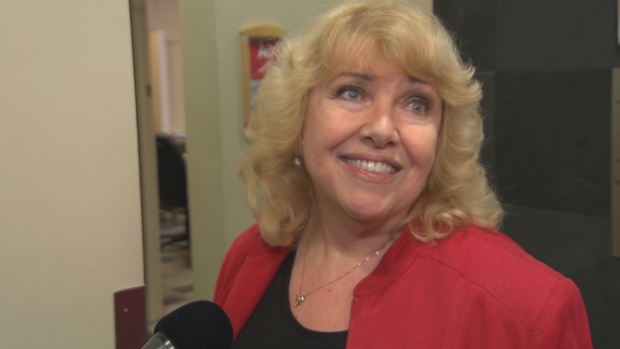Senator Lynn Beyak Says She Has "Suffered" with Residential School Survivors
By John Paul
Senator Lynn Beyak says she doesn't need any more education about the horrors of the residential school system because she "suffered" alongside Indigenous people who were sent to the institutions. The Conservative senator from northwestern Ontario reiterated her defence of the schools in an interview with CBC News on Monday. "I made my statements, and I stand by them," she said. "I think, if you go across Canada, there are shining examples from sea to sea of people who owe their lives to the schools," she said, while acknowledging that the bad parts of the schools were "horrific." "I've suffered with them up there. I appreciate their suffering more than they'll ever know," she said. "The best way to heal is to move forward together. Not to blame, not to point fingers, not to live in the past." Beyak, who sits as a member of the Senate's Aboriginal Peoples committee, said she has received hundreds of positive remarks after she delivered a speech in which she chastised the Truth and Reconciliation Commission for not "focusing on the good" of the "well-intentioned" institutions. "There were two sides to every story. We have 700 letters, we'll make it a binder, we'll make it all available," she said Monday. "Hundreds and hundreds and hundreds of letters." Despite Beyak's claim she has been inundated with positive comments, other groups, including the Anglican Church of Canada, have gone public to denounce her remarks. "There was nothing good about children going missing and no report being filed. There was nothing good about burying children in unmarked graves far from their ancestral homes. It heaped cruelty upon cruelty for the child taken and the parent left behind," wrote the church, which ran some of the schools, in an open letter to Beyak. The commission, which conducted an exhaustive six-year study of the residential school system, found physical, mental and sexual abuse was rampant, and some 6,000 children died while in care because of malnourishment or disease. The Assembly of First Nations and other Indigenous leaders have reached out to Beyak since she made her comments — offering to provide further information about the system — but the senator said she doesn't need a history lesson because she has lived in northern Ontario for 40 years. "I don't need any more education. I've been involved since we double dated when I was 15 with an Aboriginal fellow and his wife," she said. "I've worked with them, they're my friends, they spoke at my husband's funeral. We all get along great. We want a better future." No reason to resign from Aboriginal committee Saskatchewan Liberal Senator Lillian Dyck, the chair of the Aboriginal Peoples committee, has said Beyak should consider resigning from the committee given the outrage generated by her defence of residential schools. Dyck said she fears witnesses will be reluctant to appear before the committee with Beyak at the table. The Conservative senator said there is no way she will resign. "Nobody's given me a valid reason why I should [resign]. I have work to do, for taxpayers and for Native people." Beyak said she is pushing for a national audit of sorts of all money the federal government spends on First Nations. She said Monday she doesn't believe the money flows to the "grassroots," and is misappropriated by chiefs. In her March 7 speech, Beyak said teachers and administrators at the residential schools were "well-intentioned" and they "didn't mean to hurt anybody." (A full transcript of her remarks can be read here.) "Mistakes were made at residential schools — in many instances, horrible mistakes that overshadowed some good things that also happened at those schools," she said. In a separate committee appearance, she pushed a historian to tell her colleagues about all the good that was done at these schools. "There were many people who came from residential schools with good training and good language skills, and, of course, there were the atrocities as well." The Truth and Reconciliation Commission did find some Indigenous students spoke highly of the skills they acquired, the benefits of recreation and sports, and the friendships they made at a school, but on the whole, for most students, academic success was elusive in the crowded classrooms and they often left feeling isolated from their families, culture and language.
|
.
Any original material on these pages is copyright © BishopAccountability.org 2004. Reproduce freely with attribution.
